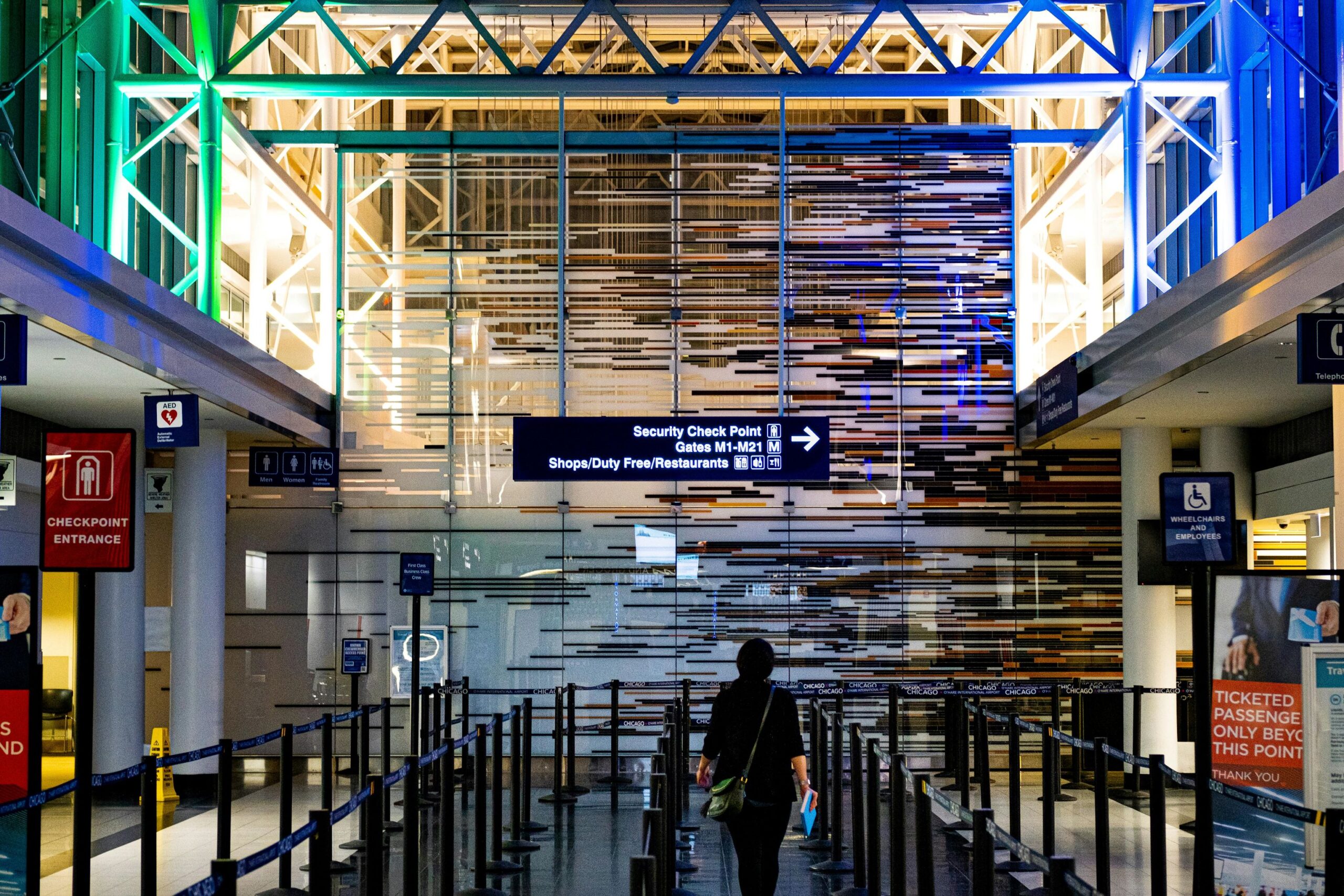Denver Airport Adopts Biometric Facial Recognition for Faster Boarding
Mike Colagrossi

If you’ve flown recently, you may have noticed that showing your ID isn’t necessarily mandatory anymore.
Denver International Airport is the latest airport to implement complete biometric facial recognition technology. They’ve just recently added it at 15 departure gates to speed up the boarding process for international flights.
Mobility Tech: The technology enables passengers to board without showing passports and state IDs to gate agents.
- The system captures images for real-time verification, which are deleted immediately after boarding.
- Airlines can also use this technology to match passengers to their lists without needing physical or digital boarding passes.
“This cutting-edge technology reflects our commitment to supporting airline partners and aligns with federal efforts to enhance secure, efficient air travel,” said Phil Washington, CEO of Denver International Airport.
Denver’s move mirrors a growing trend across U.S. airports, where biometric tech is being adopted to enhance security. Despite pushback from civil liberties groups, officials stress that privacy standards are strict, with photos of U.S. citizens deleted within 12 hours.
Widespread Support?
According to the U.S. Travel Association, 79% of U.S. air passengers back biometrics at TSA checkpoints. In fact, 9 out of 10 travelers said they’d be more likely to support it if it speeds up security.
“Air travelers overwhelmingly support TSA’s use of biometrics to enhance security and improve the travel experience,” said U.S. Travel Association CEO Geoff Freeman.
More than 80 U.S. airports are currently testing facial recognition technology, with the TSA aiming to expand it to all 430+ airports under its jurisdiction. The agency argues that this automation will help cut down on “friction”—essentially, reducing the time passengers spend moving through security.
But what risks does this technology come with?
Opting out of facial recognition
At some security checkpoints, TSA snaps a photo and matches it to your ID to verify your identity, then deletes the images right after.
But TSA’s Touchless Identity Solution takes it a step further. A camera scans your face—no ID needed. For it to work, you must have a U.S. passport, TSA PreCheck, and be part of a participating airline’s loyalty program. By opting in at check-in, TSA can pull your info from U.S. Customs and Border Protection’s cloud-based Traveler Verification Service, ready for your flight in the next 24 to 48 hours.
How to opt out of facial recognition at airports.
Saying no to biometrics is easier than you might think—at least on paper. For domestic flights in the U.S., everyone, regardless of citizenship, can opt out. (For international flights, U.S. citizens can opt out, while foreign nationals are generally required to participate, with a few exceptions.) Just step away from the camera or keep your mask on, show your ID, and say, “I opt out of biometrics. I want the standard verification process.” Then you’ll show your ID like normal.
Opting out of biometrics is simple, but not always smooth. While TSA and CBP should manually verify your ID if you choose the standard process, some travelers report pushback. And while airports are required to post signs about your right to opt out, spotting them can feel like a scavenger hunt. Keep your ID handy, and don’t hesitate to request the traditional verification process.
How safe is public facial biometric technology?
Facial recognition may lose its edge in the future, especially for online scenarios where face-to-face verification isn’t required. AI-generated deepfakes are evolving rapidly, imitating subtle movements like blinking and facial expressions, raising concerns about the reliability of current systems.
- 30% of enterprises won’t rely solely on identity verification by 2026 due to deepfake attacks (Gartner).
- Deepfakes are becoming increasingly sophisticated, imitating facial expressions, blinking, and micromovements.
While reputable institutions generally protect biometric data well, they aren’t immune to breaches or unforeseen hacks. As Frances Zelazny, CEO of Anonybit, a startup focusing on protecting biometric data, points out, “I’m more worried about advanced hacks than someone taking my picture off Facebook.”



